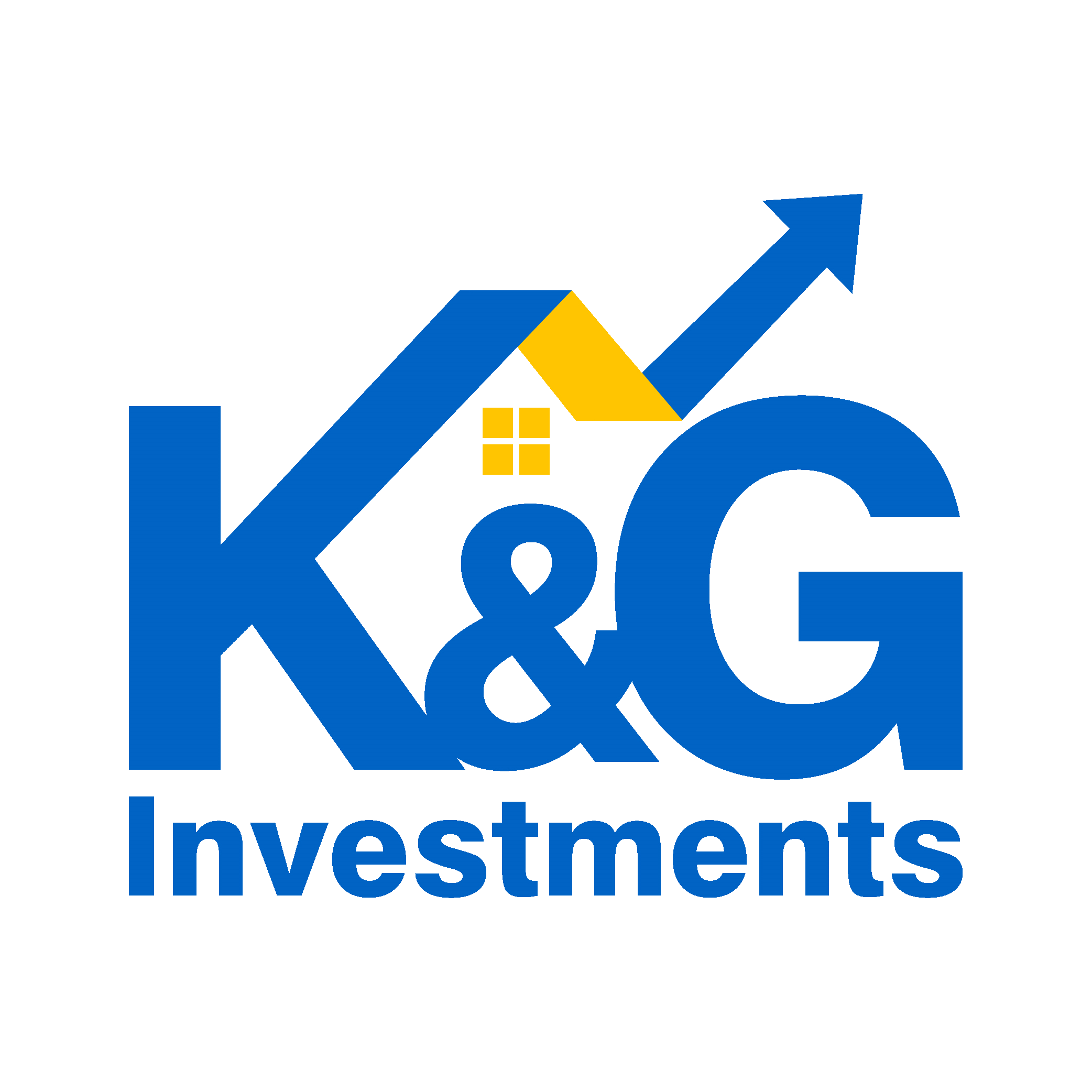
Understanding Real Estate Transactions in Minneapolis, Minnesota
Understanding the processes involved in real estate deals is crucial for homeowners in Minneapolis, Minnesota, especially when planning to sell their house directly to a bank. This involves dealing with the local housing market and conditions, as well as the laws governing property transactions and sales.
Located areas of varying economic activities, characterized as microeconomies, are driven by responses to adjacent neighborhoods, property values, and macroeconomic trends. The City of Lakes has an extensive real estate portfolio. A homeowner selling homes to banks in Minneapolis should understand the bank’s appraisal process, which determines whether your house’s fair market value is equivalent to its price.
Knowing what terms and conditions were included in existing mortgages before a specific sale date is also essential, since those will affect negotiating with the bank. Sellers should also comprehend all possible closing costs so they do not lose out on value for their assets during direct sale transactions.
Engaging with real estate professionals with expertise in the Minneapolis market can provide valuable insights and facilitate smoother negotiations when dealing directly with banks.
Navigating the Housing Market in Minnesota: Tips for Sellers
Strategic planning and understanding the local real estate market are essential when selling a home to a bank in Minneapolis. Sellers should do proper research to understand Minneapolis’s current trends and property values so they don’t miss out on opportunities.
Every region has unique characteristics, so focusing on Minnesota’s housing market can prove helpful. Finding local real estate professionals or specialists in bank-related deals will help you acquire more precise information tailored to your needs.
These experts help provide an accurate home valuation, which allows sellers to negotiate with banks. Besides, the transaction flow remains smooth, and everything proceeds without hitches because of completing paperwork like title deeds, proof of ownership documents, and other required documents alongside the title deed part.
Moreover, maintaining the house and upgrading some features increases its appeal to potential buyers and banks seeking new investment opportunities. Knowledge of the law and local regulations regarding direct sales to banks would greatly enable Minneapolis homeowners to manage the new selling process.
Can You Sell Properties to the Bank?
Yes, you can sell properties directly to a bank in Minneapolis, but specific conditions and processes are involved. When considering selling your house to a bank, it’s essential to understand the options available and how the process works.
Typically, banks obtain real estate assets through foreclosures or short sales. In a foreclosure, the bank “owns” the asset because of a mortgage default; however, in a short sale, the borrower sells the property for less than what is owed on the loan after receiving permission from the lender.
To start this process on purpose, you must contact your mortgage provider. They can help you determine if they would be willing to buy out your home.
It’s important to note that banks primarily focus on acquiring distressed properties or those at risk of default. As a result, selling to direct lenders like banks may not work for you if you are up to date on your mortgage payments and do not face financial trouble.
Professionals in real estate and law based in Minneapolis are better placed to assist you with further strategies detailing how best to sell your home efficiently while also helping you grasp the expected taxes or impacts on credits resulting from such transactions.
K&G Investments can assist you throughout this process.
Key Factors That Influence Property Value in Minneapolis

Several key factors can significantly influence the property value when considering selling your house directly to a bank in Minneapolis. Minneapolis’s local real estate market trends are crucial, as they dictate demand and supply dynamics.
Public schools in the vicinity, recreational areas, and the availability of public transport all add value to a location. Also, homes with a good structural sound, like those updated recently or that need little maintenance, tend to do well with loans from banks.
Moreover, employment opportunities and interest rates also impact the economy, which affects buyers’ purchasing power. Additionally, financing options impact property values. The last comparable sales in the region aid in estimating your home value and provide a benchmark.
Understanding these factors helps ensure you receive a fair valuation when selling your house directly to a bank in Minneapolis.
Preparing Your Home for Sale: Essential Steps for Success
A thorough preparation is essential to sell your house straight to a bank in Minneapolis. Consider starting with the curb appeal; remember that a first impression will significantly shape a buyer’s opinion of your home.
Start from the yard and work up to a clean and painted exterior. Also, indoors, clear out every room so that prospective buyers can imagine themselves residing in it.
Fix any relevant repairs and maintenance issues, like leaky faucets or cracked tiles. Remember, banks tend to view the property’s condition very keenly. Use neutral decor and furnishings to stage the home so that it puts its best foot forward.
Moreover, collate all your home documents, such as previous appraisals, tax returns, appliance warranties, and renovation warranties. Such information can be beneficial when negotiating with the bank.
Lastly, a market analysis of the Minneapolis housing market and its trends will be performed; this will aid in pricing out a competitive figure suitable for the market and banks’ expectations. Contact us to get started on your home evaluation.
The Process of Selling Property to a Bank: a Step-by-step Guide
Selling your house directly to a bank in Minneapolis can expedite the property sale process. First, you must contact the bank and express your interest in selling your property directly.
You must provide the exact address and condition of the house and list any outstanding mortgages attached to it. The bank may conduct a property valuation appraisal or inspection to determine how much lending services could be extended against it.
It’s prudent to obtain documents like title deeds, mortgage statements, liens on the property, etc., for proper preparation ahead of time. It is best to have someone in your company explain everything to a trusted real estate buying agent from that bank so that deals go as planned.
After assessing the property’s market value and condition, the bank will extend an offer to you. If you accept their offer, both parties will prepare a purchase agreement containing all pertinent terms and conditions of sale.
Once both sides complete and sign the documents, you will schedule closing procedures, where ownership is officially transferred from you to the bank. It might help you to speak with a real estate lawyer or someone with experience selling directly to banks so that all legal protocols are appropriately followed throughout the transaction.
Enhancing Curb Appeal: Attracting Buyers and Banks Alike
Enhancing curb appeal is crucial in selling your house directly to a bank in Minneapolis, as it can significantly attract both potential buyers and banking institutions. Start by ensuring that the exterior of your property is clean and well-maintained, as first impressions are vital.
A freshly painted door or a paved driveway makes a good first impression. To make matters even better, landscaping such as spring flower planting, lawn mowing, and bush trimming adds cheerful colors, especially when colorful flowers are added to the landscape.
Scheduled power washing of walkways and sidelines eliminates dirt buildup, making the home seem like it has undergone some renovations. Outlet replacements to outdoor lighting also serve as security measures while bringing attention to architectural parts of the house during evening hours.
Moreover, fixing any visible damages, such as broken gutters and cracked windows, shows care for the property, which helps banks. Attention to this will go a long way in increasing your home’s curb appeal, which will be important to possible buyers and institutions looking at direct purchase.
Legal Considerations When Selling Your House to Financial Institutions

Critical legal issues to consider when selling your house directly to a bank in Minneapolis include ensuring that you have undivided property ownership. Banks only transact with clear title transfers.
A proper title search can reveal possible existing liens on your property, which may need to be cleared for the sale to go through. To avoid unwanted surprises, you must also learn about real estate litigation and local disclosures around Minneapolis.
Engaging a real estate legal expert knowledgeable in Minnesota’s regulations is prudent, as they can assist you through the process by examining all relevant contracts to determine whether you are legally protected on all sides. Matters like purchase price and closing date must also be kept within state law boundaries in negotiations.
Moreover, it is essential to recognize any mortgage obligations relating to your property, as this will influence the payoff sum during closing. Obtaining a few documents from your bank is standard; however, compiling all required documentation before your appointment significantly speeds up the process.
Consulting with professionals familiar with direct sales to financial institutions can provide valuable insights into avoiding common legal challenges and ensuring a smooth transaction.
Financial Implications of Selling Your House to a Bank
Selling a home directly to a bank in Minneapolis is far from being an informed decision, considering the negative financial repercussions that it entails. If you are facing foreclosure or need to move urgently, one of the potential advantages could be faster closing times.
Walking into a bank for a deal sometimes eliminates time spent looking for agents and waiting for property viewings, drastically reducing marketing costs. Also, during open markets, house sellers tend to make higher bids than the bank and realtor offer, as they entice sellers with lowball offers, reducing sellers’ equity in the property sale.
Additionally, assessing the remaining balance of the mortgage versus any early payoff penalties is crucial because it impacts net proceeds. It is equally prudent to understand what tax obligations may exist on a lien since they must be paid off or settled during the sale or settlement.
Dealing directly with the bank’s acquisition team may simplify negotiations, but ensuring that all legal documents are scrutinized protects your financial interests.
Tax Implications of Selling Real Estate in Minneapolis, Minnesota
Understanding the tax consequences of selling your house directly to a bank in Minneapolis, MN, is essential. Selling property in Minnesota, as in the rest of the country, might incur capital gains tax.
You may not owe as much capital gains tax if the house has been your primary residence for two out of five years. You stand to benefit from exclusions up to $250,000 for single filers and $500,000 for married couples filing jointly. While it’s nice that such exemptions exist, there’s no doubt these limitations will probably disqualify you from some of the benefits.
Also, any debt forgiven due to a short sale may fall under certain conditions, like insolvency. Additionally, keeping careful records of all improvements made during the ownership period is essential because it increases your cost basis and minimizes the taxes payable on profits.
Working with a tax expert who knows the ins and outs of Minnesota’s real estate law will help you get the right advice to follow both federal and state tax laws while you sell your home for cash in Minneapolis and other Minnesota cities.
Timing the Market: When Is the Best Time to Sell?
Timing the market is crucial when selling your house directly to a bank in Minneapolis. Understanding local real estate trends can significantly impact your sale’s success.
Spring and early summer are typically the most favorable times to sell, as buyer demand peaks during these periods due to pleasant weather and school schedules. However, selling directly to a bank offers some flexibility since they may not be as influenced by seasonal changes as individual buyers.
It’s essential to monitor economic indicators such as interest rates and housing supply in Minneapolis, as these factors can affect bank purchasing decisions. Additionally, staying informed about any shifts in the local housing market can help you determine the optimal time to initiate contact with banks.
By aligning your sale with favorable market conditions, you increase the likelihood of achieving a competitive offer for your property.
How Appraisals Affect Your Home Sale Price in Minneapolis

When selling your house directly to a bank in Minneapolis, understanding how appraisals affect the sale price is crucial. An appraisal provides an unbiased estimate of your home’s market value, which can significantly impact the bank’s offer.
In Minneapolis, appraisers consider various factors such as the property’s location, size, condition, and comparable home sales in the area. The local real estate market trends also play a vital role in determining value.
A high appraisal can strengthen your negotiating position with the bank, potentially leading to a better sale price. Conversely, if the appraisal comes in lower than expected, it could limit your options or require adjustments to align with market realities.
Banks rely heavily on these valuations to ensure their investment is sound, making it essential for sellers to prepare thoroughly for the appraisal process by addressing any necessary repairs or improvements that could enhance their home’s assessed value.
How to Sell Your House Quickly in Today’s Market
In today’s fast-paced real estate market, selling your house quickly to a bank in Minneapolis requires strategic planning and understanding current trends. To expedite the sale process, evaluating your property’s condition and making any necessary repairs or upgrades that could enhance its appeal is crucial.
Pricing your home competitively is essential; thus, conducting a thorough comparative market analysis can help you set an attractive price point for potential cash home buyers in Brooklyn Park and surrounding cities in Minnesota. Engaging directly with banks that purchase properties can streamline the transaction, as these institutions often have standardized procedures for acquiring homes swiftly.
Ensuring all necessary documentation is prepared in advance can prevent delays during negotiations or closing. Additionally, working with a real estate professional familiar with bank transactions in Minneapolis can provide valuable insights and connections to facilitate a faster sale.
Maximizing online marketing efforts through high-quality photos and engaging property descriptions will increase visibility among banks actively seeking acquisitions.
Pros and Cons of Selling Your Home Directly to the Bank
Selling your house directly to a bank in Minneapolis can offer several advantages, but it’s essential to understand the potential drawbacks. One of the primary benefits is the streamlined process, which often involves fewer complications compared to traditional home sales.
You may avoid dealing with real estate professionals and their commissions, which can save you money. Additionally, selling directly to a bank might expedite the transaction, allowing for a quicker closing timeline, which is beneficial if you’re looking to sell your property quickly due to financial constraints or relocation needs.
However, there are also cons to consider. Banks typically purchase properties at lower prices than you might achieve on the open market since they are primarily interested in acquiring assets below market value.
This could mean receiving less profit from your home sale than anticipated. Furthermore, banks may have stringent requirements or specific conditions that could complicate negotiations or lead to unexpected delays if those terms aren’t met promptly.
Understanding these pros and cons is crucial when deciding whether this method of selling aligns with your financial goals and circumstances in the Minneapolis real estate market.
Common Mistakes Homeowners Make When Selling to Banks
When selling your house directly to a bank in Minneapolis, homeowners often make several common mistakes that could delay the process or reduce the offer they receive. One frequent error is neglecting to thoroughly research the current market conditions, which can lead to unrealistic price expectations.
Overpricing your home may discourage banks from making an offer or result in lower-than-expected bids. Failure to properly prepare the necessary documentation, such as title deeds and mortgage information, can cause significant delays and complications during negotiations.
Homeowners also sometimes overlook the importance of addressing any outstanding repairs or maintenance issues before contacting a bank; such issues can negatively impact the bank’s property valuation. Another mistake is not understanding the terms and conditions of direct sales to banks, including any potential fees or requirements that might arise during closing.
Lastly, inadequate communication with banking representatives can lead to misunderstandings and missed opportunities for negotiation, making it crucial to maintain open lines of communication throughout the transaction process.
Do Banks Buy Your House?
When considering selling your house directly to a bank in Minneapolis, it’s essential to understand how this process works and whether banks buy properties from individual homeowners. Generally, banks are not in the business of purchasing homes directly from sellers.
Instead, they typically acquire properties through foreclosure processes when homeowners default on their mortgages. However, there are certain circumstances where a bank might be interested in buying a property directly, such as during short sales or attempting to mitigate potential losses from foreclosures.
In these cases, the homeowner negotiates with the bank to sell the house for less than the amount owed on the mortgage. To successfully navigate this route in Minneapolis, it is crucial to work closely with real estate professionals with experience in short sales and direct negotiations with banks.
Understanding the nuances of how banks operate and what documentation and conditions they require can significantly improve your chances of completing a successful transaction directly with a financial institution.
Can You Just Give Your House to the Bank?
When considering selling your house directly to a bank in Minneapolis, it’s important to understand if simply giving your home back to the bank is an option. This concept, often called a deed instead of foreclosure, allows homeowners in Minneapolis to transfer ownership directly to the bank rather than going through the traditional foreclosure process.
However, this option is typically pursued when homeowners struggle with mortgage payments and wish to avoid the negative impacts of foreclosure on their credit score. Before proceeding, it’s crucial for Minneapolis homeowners to communicate with their lenders and explore whether they qualify for this arrangement.
Banks may require proof of financial hardship and will assess the property’s value before agreeing to a deed in lieu. While this can be a viable solution for some, it’s essential for those wanting to sell their house directly in Minneapolis to weigh all options, including negotiating short sales or exploring direct sales strategies that might better align with their financial goals. For insights to boost your results, read Maximize Your Home Sale In St. Paul to approach your transaction with confidence and clarity.
Do you need to sell your house? Sell quickly, avoid expensive repairs, or want a hassle-free transaction. K&G Investments is here to help. We make fair cash offers, handle all details, and simplify the process. Are you ready to sell or have any questions? Call us at (612) 400-8070 for a no-obligation quote. Get started now!
| FORECLOSE | FORECLOSURE SALE | FORECLOSING | MORTGAGE FORECLOSURE | LIENHOLDER | CASH |
| MINNEAPOLIS, MN | MINNEAPOLIS MN | CREDITOR | RESIDENTIAL MORTGAGES | MORTGAGE DEBT | BORROWERS |
| SHERIFF | LOAN | SHERIFF’S SALE | SHERIFF’S SALE | REAL ESTATE FIRMS | REAL ESTATE COMPANIES |
| SCAMMER | SCAMS | SCAM ARTISTS | DEFAULTED | LOAN DEFAULTS | MARKET PRICE |
| U.S. | INVESTORS | COURT | ST. PAUL, MN | ATTORNEYS | |
| EXPENSES | CREDIT RATING | BIT | AUCTION | REAL ESTATE INVESTORS | REAL ESTATE INVESTMENT |
| IBUYER | INSTANT BUYER | DIVORCE | COMPANY | BUTTON | AFFIDAVIT |
| A CASH OFFER | THE FORECLOSURE PROCESS | GET A CASH OFFER |
Helpful Minneapolis Blog Articles
- Selling A House As-is In Minneapolis, MN
- Selling Your Home In Minneapolis, MN
- Selling A Home In Need Of Repairs In Minneapolis, MN
- Tax Obligations When Selling A House In Minneapolis, MN
- Selling Your Minneapolis, MN, Home To A Developer
- Do I Need A Lawyer To Sell My House In Minneapolis, MN
- Home Appraisal Before Closing In Minneapolis, MN
- Sell Your House Directly To A Bank In Minneapolis, MN
- Home Staging Costs In Minneapolis, MN
- Strategies For Divorce Home Appraisal In Minneapolis, MN
- FSBO vs. Realtor: Selling Your Home in Minneapolis, MN
- Who Covers Appraisal And Inspection Costs In Minneapolis, MN

